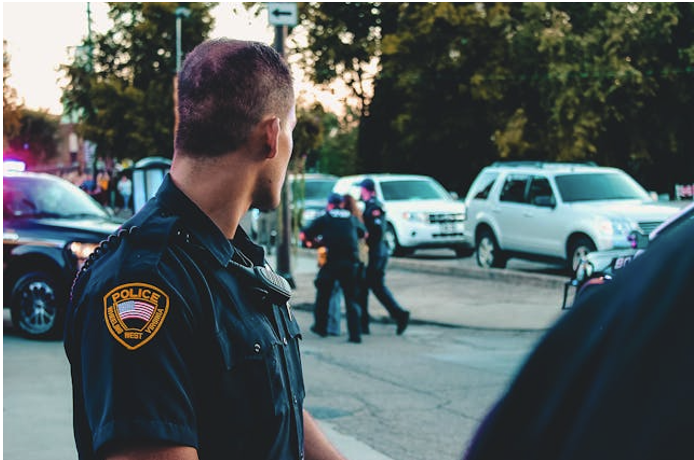
https://www.pexels.com/photo/man-wearing-black-officer-uniform-1464230/
A career in law enforcement is among the most desired ones for students as it can be gratifying. This industry offers plenty of opportunities on all levels of government, from local to federal. Hence, students have various choices depending on their education and talents.
One of the most effective ways to build a career in law enforcement is by getting a college degree. Dedicated learning will bring you knowledge and a diploma, setting a good start for a brilliant job. But being a student can be a challenge, and if you need help, you are not alone. You will forget about all homework problems if you hire paper writing service or an argumentative essay writer with skills and knowledge. Reaching out to such helpers online is easy and safe, so do not hesitate to delegate some tasks to them anytime, as they work 24/7.
The first step to your career in law enforcement would be improving your chances by getting the required education. Moreover, you will need a spotless record and high grades to meet the standards of your future responsible job.
Students who attend internships during their studies have the highest chances to build a career in law enforcement. Note that an internship must be relevant to your future job choice, as there are many options in the law enforcement area that will be discussed below. Doing your best during the years of studies will make your CV look solid and enhance your choice between available opportunities.
Criminal justice would be the best degree choice for a student who dreams of being considered when applying for a law enforcement job. By choosing a criminal justice degree, you get the closest to a law enforcement career as it gives all the needed theoretical basic knowledge and sometimes even allows you to get some practical experience in the field.
However, if you want to widen your choices, consider the following programs as they will also work:
Public safety
Police science
Criminology
Internal relations
Homeland Security
More educational options in addition to your primary degree are courses in cyber security, emergency management, and other similar areas. Consider all law enforcement agencies you can to find the best for you. You can apply for training in the CIA or FBI, as they regularly hold specific programs in cyber security. Of course, after attending training in a specific agency, one can count on more chances to be considered for a job at one of those agencies.
Let us discuss the career opportunities in law enforcement by dividing the career options into four groups:
If you ask a random person how they see a law enforcement worker, they will probably imagine a uniformed officer. You will likely envision a typical law enforcement job as a police officer. However, the range of options in this group of job types is much more comprehensive. Typical law enforcement uniformed jobs include state troopers, school police officers, park rangers, deputy sheriffs, airport police officers, and others. Uniformed officers work in various settings, using cars, horses, motorbikes, or walking on foot. The duties of such workers depend on the particular agency they represent. For example, unformed police officers' responsibilities include responding to emergencies and patrolling certain areas.
Becoming a uniformed officer may require various types of education. Some workers need a high school diploma and attend an academy for several weeks, while others may need a college degree. Moreover, becoming a uniformed officer requires passing tests and undergoing various screenings and assessments.
Another large group of law enforcement workers are plainclothes officers. This type of career includes criminal investigators, detectives, Secret Service agents, CIA agents, DEA agents, FBI agents, air marshals, immigration inspectors, and other specialists. Plainclothes officers have many responsibilities and primarily work on analyzing and collecting information about crimes. Many officers are involved in interagency tasks necessary for investigating specific types of crimes. Plainclothes officers can work on local, state, or federal levels. Many uniformed officers want to build a career as plainclothes officers, which is possible after getting additional education and passing tests. Most plainclothes officers must have a college degree in criminal justice.
Legal jobs in law enforcement are vast and mainly include judicial and court workers. This group contains specialists such as city attorneys, judges, public defense attorneys, city attorneys, paralegals, prosecutors, court reporters, DHS attorneys, legal assistants, magistrates, etc.
The main purpose of specialists in legal positions in the private and public sectors is to define the guilt or innocence of suspected individuals or organizations. Most workers in legal positions in the law enforcement industry work in offices.
One who dreams about a career in the legal field must have a certain level of education and specific practical skills. However, unlike some uniform officers, these workers do not have to be physically trained.
Support jobs in law enforcement are a broad group of professionals with responsibilities such as sorting, storing, and utilizing evidence, providing laboratory work, and more essential duties. Most specialists in support positions work as assistants to agents and officers. Some examples of support jobs in law enforcement are cybercrime detectives, intelligence analysts, crime lab technicians, linguists, crime scene analysts, financial investigators, firearms specialists, police records specialists, and other professionals.
Becoming a support specialist in law enforcement requires deep knowledge and a high level of professionalism. Many support workers have a master's or doctorate degree. Support positions are available at all levels, from local to federal.
Pursuing a career in law enforcement is a rewarding and interesting choice. Depending on your skills, interests, and education, you can choose the type of job in law enforcement, from a university officer to a support specialist. We hope that after reading our article, you get a vision of the career opportunities. Good luck!